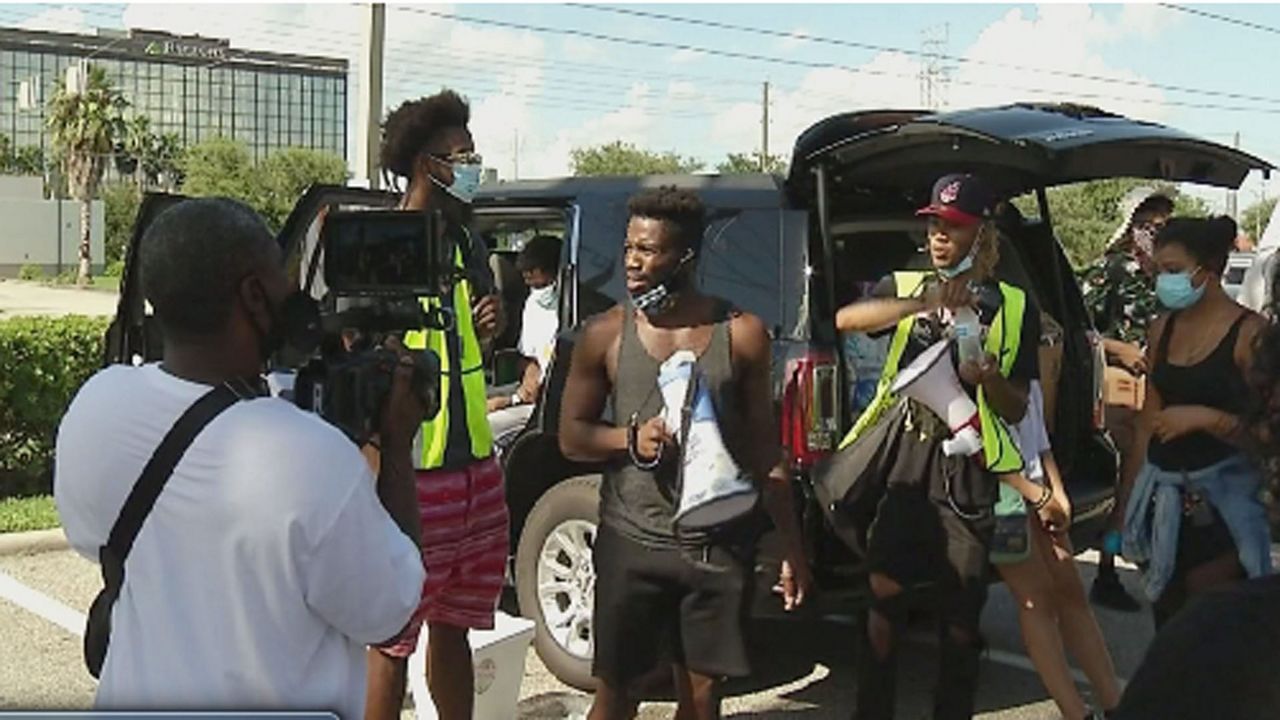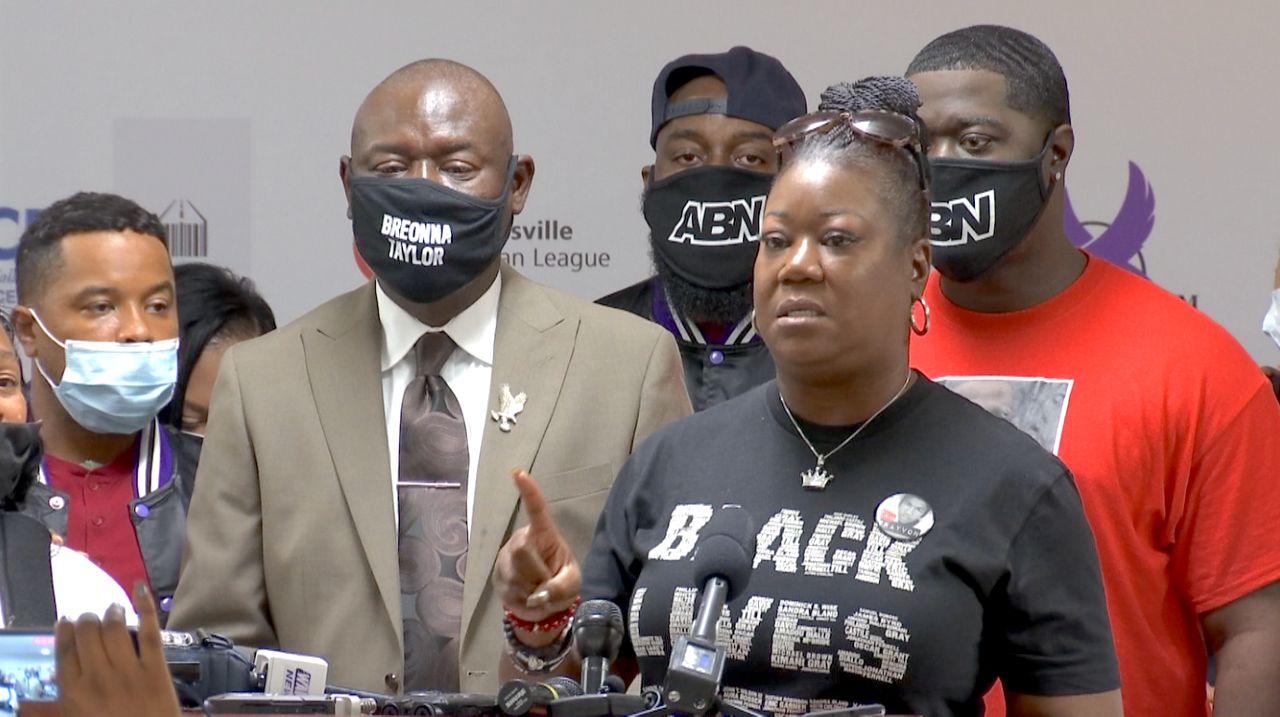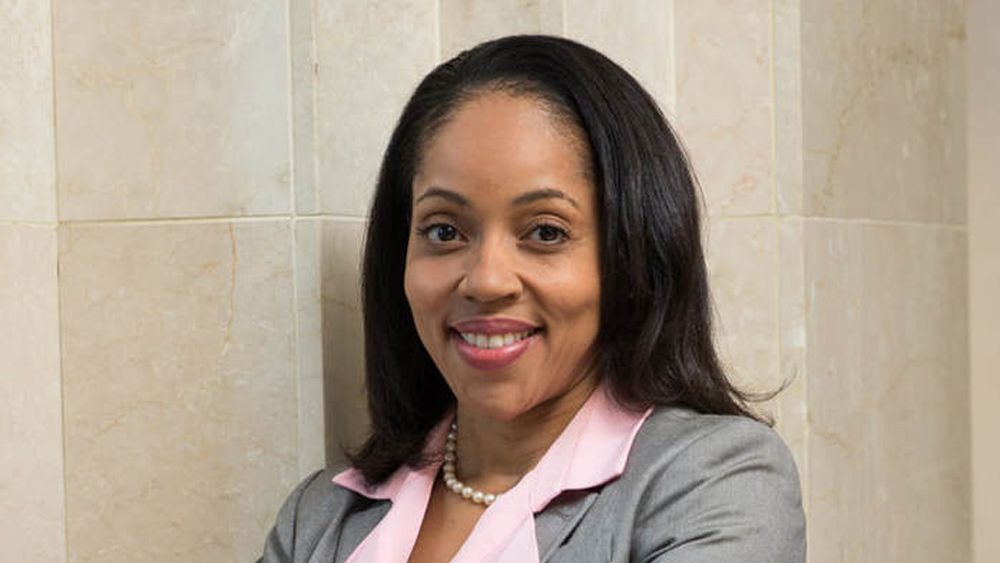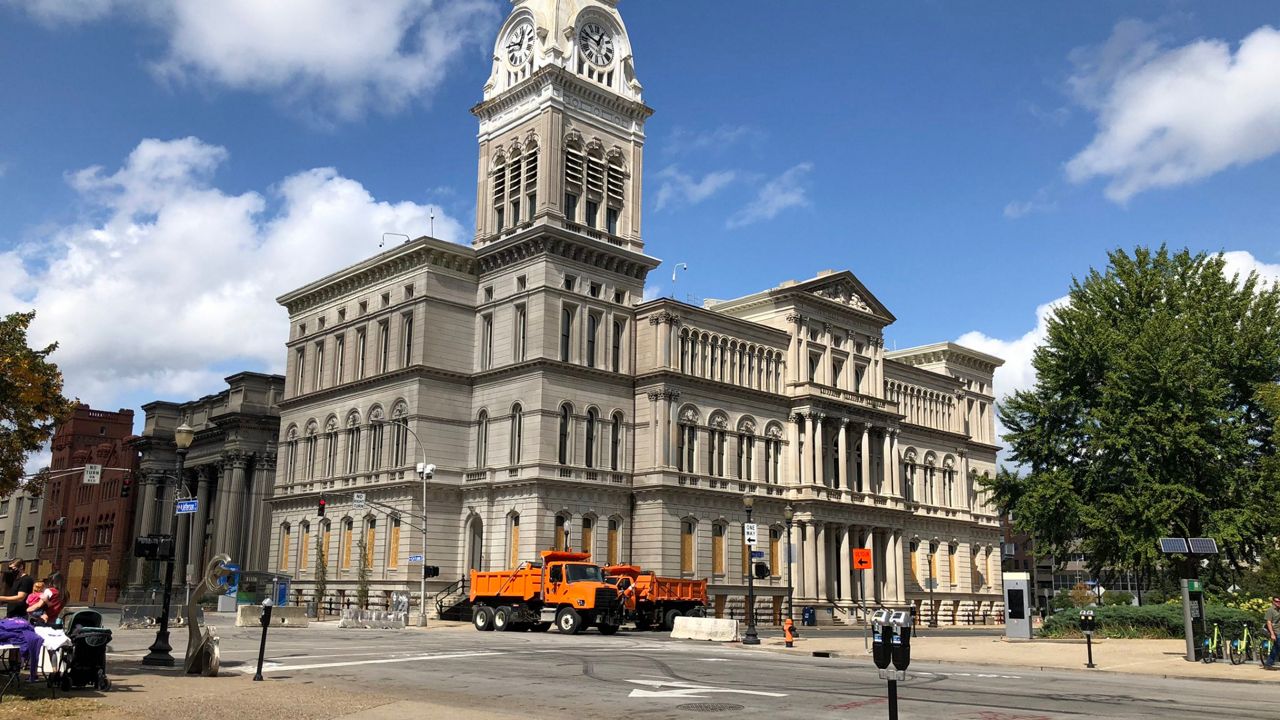ORLANDO, Fla. — Richard Crabtree didn’t hold back. Upon hearing details of an Orlando Police Department internal investigation of a 2018 traffic stop that involved three officers, he shared his feelings about one officer’s verbal conduct: “It makes me sick to hear it,” he said. “Not representative of what we think the Orlando Police Department stands for ...”
What You Need To Know
- Orlando's Citizens’ Police Review Board features 9 volunteers
- Like other boards, committee advises cops on use of force, other policies
- City wants to fill a seat that becomes available at end of this month
- HOW TO APPLY: Visit the City of Orlando website
Crabtree made his comments last week to an Orlando Police sergeant — and he made them as chairman of the Citizens’ Police Review Board.
The nine-member committee of volunteers meets on the first Wednesday of each month, virtually during the coronavirus pandemic. As an independent oversight committee, the board advises the Orlando Police Department on citizen complaints, internal investigations, and policies regarding police conduct and use of force.
The City of Orlando established the board in 1992, long before #BlackLivesMatter. The May killing of George Floyd by a Minneapolis police officer sparked widespread demands for police oversight and accountability.
The national movement also has prompted calls for more citizen-review panels and for stronger power to be given to existing ones. The Orange County Sheriff’s Office and the Seminole County Sheriff’s Office also launched citizens’ review programs in the early 1990s.
Caila Coleman, vice chair of Orlando’s Citizens’ Police Review Board, said some law enforcement agencies consider the Orlando board "an example of how to start a review board."
“We've gotten a lot of people, especially when there were more protests going on, sitting in our meetings and learning about what we do," she told Spectrum News 13 after last week’s meeting.
How the board works
The Orlando board works much like a city commission meeting, with more formality in a 1-hour session that you’ll otherwise find in one year. It includes a roll call, call to order, public comment period, consideration of minutes, new business, old business, and even more business.
It also features words and that you otherwise rarely say or hear, such as “quorum,” “adjourn,” “aye,” and “nay.”
The board also looks much like Orlando in terms of diversity. For that, Coleman credited resident volunteers who recommend board members and city officials who approve them.
“They pick people from different zones of Orlando,” she said. “Everybody's not coming from one place, and that’s the beauty of it.”
City officials point out that a seat becomes available at the end of this month. Residents can find an application on the city’s website, which offers opportunities to serve on about two dozen such boards, including ones for affordable housing, zoning adjustment, downtown development, and public art.
A volunteer board makes recommendations to Orlando Mayor Buddy Dyer, whose appointments must receive city council approval.
For the citizens’ police review board, residents can serve up to three 2-year terms. Unless a board member resigns, the next available seat won’t come until about 2023, a city spokeswoman said.
“So, all of the faces that you see now are fairly new,” Coleman said.
Coleman, an Orlando lawyer, said she joined the board in 2016, in part because she had not “always had great encounters with police officers.”
“And I was trying to think of a way that I could try to bridge the gap between the community and the police,” she said.
A visit from the chief
Last week’s virtual meeting saw a visit from Police Chief Orlando Rolon, who offered updates including a Community Trust and Equity Initiative that will involve third-party analysis and recommendations on reforms of policies, practices, training, accountability, and more.
Rolon also praised the work of his police force, telling board members of two officers who purchased backpacks for two children whose home had been damaged by an errant car. He then told of an officer who demonstrated “excellent command of verbal judo” in flipping a tense situation into a calm one.
“We’re not perfect. We’re far from it,” Rolon told board members. “No one is perfect, but we strive to be. Although you have the task of listening to our investigations and then giving us recommendations … I also want you to know that we do have a lot of great officers that perform these types of tasks on any given day.”
The chief added: “I know we’ve talked about how we can maybe bring you in to review how we do vehicle stops, this, that and the other … I’m highly encouraging that.”
Coleman told Spectrum News 13 that the police department, including former Police Chief John Mina — now the Orange County sheriff — has been receptive and responsive over the years. She credited the board for the police department’s decision a few years ago to require officers to carry body cameras.
Over the summer, she lamented in news reports that the citizens’ review board lacked teeth, as she put it, when it comes to police internal investigations.
“What I would like to see for the state of Florida is a state law where they give us power to subpoena, to take testimony, and give us more power than what we have now,” Coleman told Spectrum News 13 last week. “But I think we still have to continue doing what we're doing, because what we're doing is very important, even if it takes time for us to get it done.”
An internal investigation
The “new business” of last week’s virtual meeting featured appearances by Orlando Police Internal Affairs Manager Dwain Rivers and Sgt. Ryan McConnell, who reported to the board an internal investigation of three officers on the treatment of one man during a February 2019 traffic stop.
The investigation centered on the actions of officers Andrew Mamone and Jeffery Madison in an encounter with Daquan Grant, a passenger in a car with Tarik Green.
McConnell told the board that officers asked the men to step out of the car after Green told them he had cannabis. Handcuffed, Grant ran away.
Officers Mamone and Madison caught him, and Grant was told to “reposition his handcuffs to the rear,” McConnell said.
Grant said several times that he couldn’t reposition the handcuffs himself, McConnell said. Mamone then forced Grant’s legs through the handcuffs, McConnell said.
“This action taken by Officer Mamone was deemed unreasonable,” McConnell said. For one thing, McConnell said, Grant “never became violent or threatened violence.”
McConnell said the department upheld complaints against Mamone and Madison on violation of policies regarding “treatment of prisoners” and duty to report violations. Madison failed to stop Mamone’s actions or offer alternatives, McConnell said.
The department also initially upheld a complaint against Officer Jordan Sites, who remained with the driver of the car during the encounter, for failure to report the violation. Through a grievance process granted through the police collective bargaining agreement, Sites challenged that finding, which was overturned, McConnell said.
After a pause, board chair Crabtree said: “I think it was Mamone who said, ‘It’s a miracle. Your legs work and everything.’ Totally sarcastic and uncalled for.” It indeed was Mamone who said that, Orlando Police told Spectrum News 13 later.
Crabtree added: “And as he was directing the passenger, who had been handcuffed while he was being told to wait, he said, ‘Hang out by your boy.” Again, totally disrespectful, and it makes me sick to hear it. Not representative of what we think the Orlando Police Department stands for, and totally not indicative of what the chief has just talked with us about.”
Board members asked questions of Rivers, the internal affairs manager, about policies regarding police courtesy and treatment of people. Then they voted and unanimously accepted “IR-19-33 as presented.”
Officer Madison received a written censure for his role in the incident, while Mamone and the department await the findings of an arbitration hearing, an Orlando Police spokeswoman told Spectrum News 13.
Accuracy, to the letter
The board moved on to review a letter it wrote to Rolon in response to a 2018 incident involving Officer Alex Chase. Board members meticulously combed every paragraph, in one case inserting “alternative” before “options” as part of its policy recommendations on use of a weapon, particularly when it involves people in a vehicle. Board members voted “to accept this letter as revised.”
Toward the end of the meeting, Crabtree reminded board members that this would be his final meeting – creating the board’s new opening. He thanked the board, and board members thanked and saluted him.
“It’s definitely been an honor,” Coleman said to Crabtree, “… and I’m just happy to know you.”








